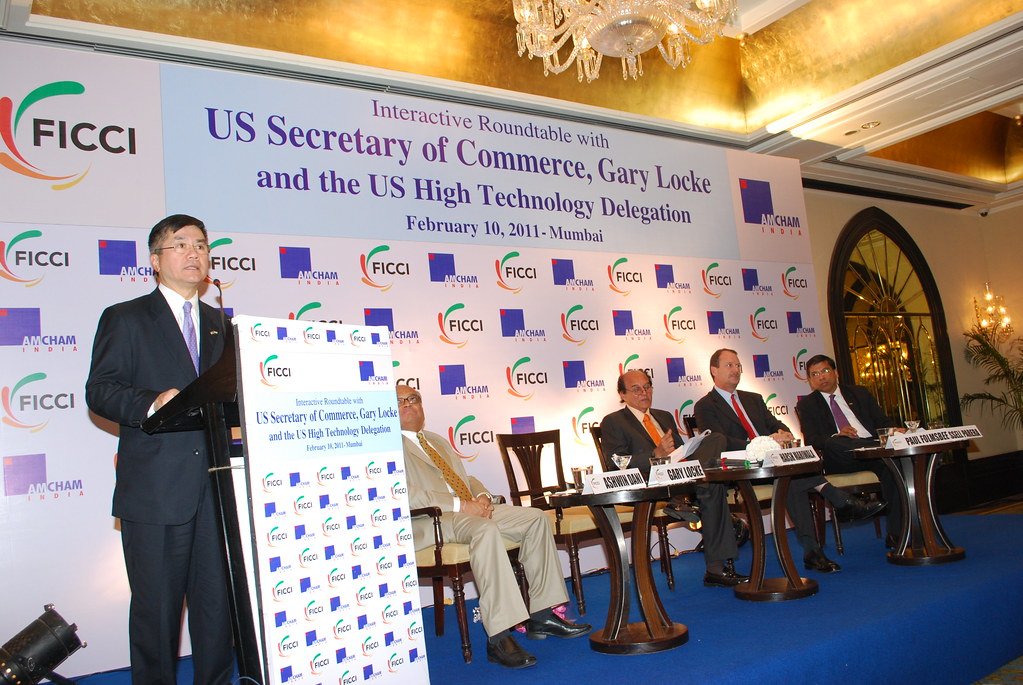In a recent landmark meeting, U.S. Commerce Secretary Gina Raimondo and Chinese Commerce Minister Wang Wentao convened to discuss and address concerns related to American businesses operating in China. This intensive dialogue spanned over two hours, highlighting significant concerns and facilitating bilateral understanding. In addition to the meeting, the two officials also shared a two-hour lunch, solidifying the importance of fostering strong economic ties between the world’s two largest economies.
Key Points of Discussion
- Concerns About American Businesses: A primary focus of the meeting was the restrictions faced by American businesses, notably tech giants like Intel and Micron Technology. The discussions aimed to bridge gaps and enhance mutual understanding of business operations and their intricacies.
- Export Restrictions: Raimondo and Wang also shed light on China’s recent curbs on exports of vital minerals like gallium and germanium. Such restrictions have broad implications for various industries, making them a pertinent point of discussion.
- Formal Communication and Addressing Difficulties: Raimondo emphasized the commitment of the U.S. to ensure smoother operations for American businesses in China. “We’re delivering. We will have that formal communication,” Raimondo confidently asserted during her meeting with business magnates.
- Strengthening Communications: Raimondo’s trip is a testament to the Biden administration’s intention to fortify economic and defense communications with China. As global economic dynamics shift rapidly, fostering robust communication channels is imperative to safeguard business relationships.
- Micron Memory Chips: In her dialogue, Raimondo also highlighted concerns over China’s effective ban on the procurement of Micron memory chips. The ramifications of this ban are far-reaching, particularly for the tech industry.
- Stock Market Reactions: The discussions and potential implications for the businesses in question led to positive stock market reactions. Micron’s shares surged by 2.5%, while Intel experienced a 1.1% rise after the news broke.
Reactions and Observations
The intensified diplomatic efforts by the U.S., exemplified by Raimondo’s visit and preceded by trips from Treasury Secretary Janet Yellen and Secretary of State Antony Blinken, have garnered significant attention in Washington. Many China hardliners, especially within the Republican camp, are eager to see a tougher stance from President Joe Biden towards China.
House Foreign Affairs Committee Chairman Michael McCaul voiced his skepticism about the new diplomatic efforts. He viewed the administration’s actions as “at best naive, but also dangerous.” McCaul’s remarks underscore the larger apprehension that China should be perceived as a potent adversary, with ambitions contrary to American values and national security interests.
Significant Agreements and Future Endeavors
- Working Group on Commercial Issues: As a result of their dialogue, the two nations agreed to form a formal working group focusing on commercial issues. This initiative is aimed at reducing potential misunderstandings, primarily regarding U.S. national security policies.
- Export Control Information Exchange: Raimondo announced the inception of the export control information exchange, a platform that will not negotiate policies but will instead answer questions about the functionality of export controls. The first in-person meeting of this group is scheduled in Beijing and will be spearheaded by Assistant Secretary for Export Enforcement, Matthew Axelrod.
- Export Restrictions on Advanced Semiconductors: The ongoing debate around export controls, especially pertaining to advanced semiconductors, has been a significant bone of contention. While China disapproves of U.S. efforts to limit access, Raimondo has firmly stated that this issue is non-negotiable.
- New Initiatives: The White House has recently taken steps to restrict certain U.S. investments in China’s sensitive technologies. Additionally, they are poised to implement export restrictions on advanced semiconductors. This move follows Raimondo’s statement earlier in the year about the inclusion of over 200 Chinese companies on the U.S. export control list.
- Commercial Issues Working Group: This newly-established working group is set to convene bi-annually and will comprise officials from both governments as well as private sector representatives. Their goal is to navigate and resolve trade and investment challenges and further U.S. commercial interests in China. The U.S. will host the inaugural meeting in early 2024.
- Protection of Trade Secrets: Both nations also concurred on hosting technical discussions led by experts to bolster the safeguarding of trade secrets and confidential business data.
Conclusion
The comprehensive talks between U.S. Commerce Secretary Gina Raimondo and Chinese Commerce Minister Wang Wentao mark a pivotal moment in the economic relationship between the two nations. As the dynamics of global economics continue to evolve, fostering open dialogue, establishing clear communication channels, and understanding mutual concerns are crucial. The developments ensuing from this meeting will undoubtedly shape the future economic and diplomatic relations between the U.S. and China.
Read More:
